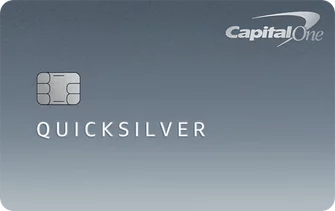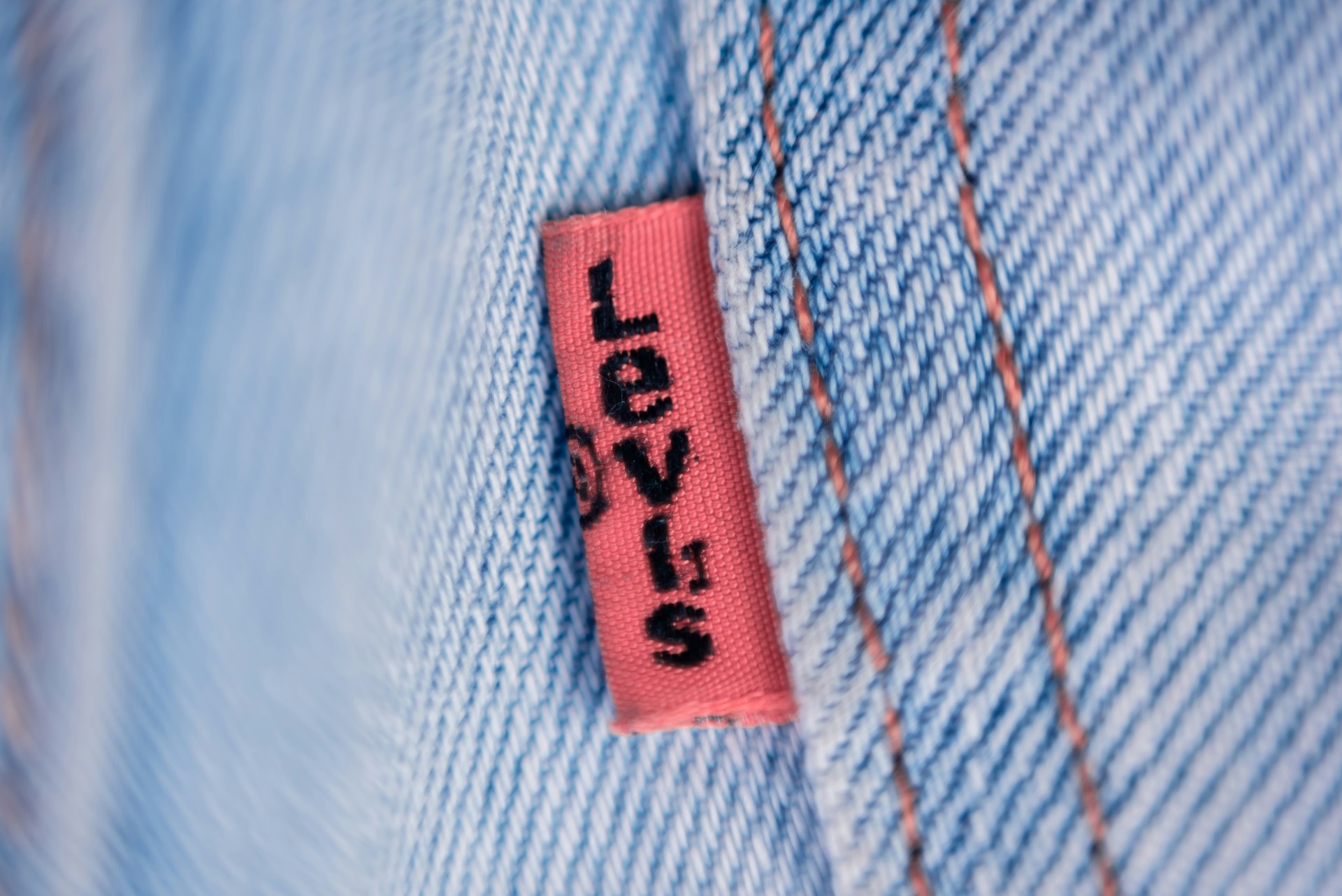One of the most important things you can do for your finances is build a good credit history.
Having good credit can help you get lower interest rates on a mortgage or car loan, and can even save you money on insurance costs in certain states.
But building your credit history can seem overwhelming at first. How does a credit score work? Which credit card do you get first?
Don’t worry. Building credit isn’t as hard or intimidating as you might think.
Erika Recommends
- Capital One Quicksilver Secured Cash Rewards Credit Card
A cashback card for people who are new to credit. - Chase Freedom Unlimited®
Beginner cashback card for eventually earning Chase Ultimate Rewards®. - RentReporters
Reports your rent payments to all three credit bureaus.

How Does Credit Work?
Think of credit as a relationship. And like in any good relationship, you should keep your promises (in this case, making on-time payments).
If you’re responsible with your credit card, lenders are more likely to increase your limit. But if you break promises, like paying your bills late, lenders will report that to the credit bureaus — which will hurt your credit profile.
Your credit history dictates what kind of interest rates and fees you’ll have to pay on credit cards and loans — or whether you’ll even qualify at all! That’s because missed payments and overuse make lenders see you as a risky borrower.
That’s why it’s so important to treat your credit like a long-lasting relationship, and not a fleeting romance.
READ MORE: How Do Credit Scores Work (and Why Do They Matter)?
What Goes Into Your Credit Score?
Several factors go into your credit score. Here’s how FICO (the most widely used scoring model) calculates your score:
- 35% for payment history: The most important factor in your score is on-time payments.
- 30% for amounts owed: Avoid carrying a high balance or maxing out your credit limit.
- 15% for length of credit history: The longer you’ve had access to credit, the better your score will get.
- 10%: for credit mix: This refers to the different types of credit you have, like a home loan, car loan, and credit card. Variety shows you know how to be responsible with different types of borrowed money.
- 10% for new credit: Applying for too many credit cards at once is a red flag. Space out your applications.
READ MORE: What Is a Good Credit Score?
The Best Ways to Build Credit
If you don’t yet have a credit score, don’t worry, you’re not alone.
According to the Consumer Financial Protection Bureau, 26 million adults in the U.S. are credit invisible, meaning they don’t have a credit score at all.
Another 19 million Americans do have a credit history, but there isn’t enough information on them to create a credit score.
This is especially true for new immigrants.
“You can be a billionaire in London and move to the United States and have the credit of a 16-year-old,” Brian Kelly, founder of The Points Guy, says in his Erika Taught Me podcast interview.
But you don’t have to be stuck in this situation. There are ways to get your credit on lenders’ radars.
Get a secured credit card
The catch-22 of having no credit is that you need a credit card to build your score. But you can’t qualify for a credit card without having credit history.
One option is to get a secured credit card.
Secured credit cards require a cash deposit to secure the credit. Your credit limit is usually equal to the amount that you deposit, but some secured credit cards will offer a higher limit in certain circumstances.
For example, the Capital One Platinum Secured Credit Card only requires a $49 minimum deposit (depending on your credit score), for up to $200 in credit.
And there are some secured cards that even offer perks like cashback, like the Capital One Quicksilver Secured Cash Rewards Credit Card. Typically, secured cards don’t come with any bells and whistles, so extras like earning cashback are a nice bonus.
Even though you’ve put down a deposit, you’ll still want to keep your credit utilization ratio low and make on-time payments each month. This will demonstrate to lenders that you are responsible with credit.
Capital One Platinum Secured Credit Card
Rewards Rate
- None
Welcome Offer
None
Annual Fee
$0
Minimum security deposit
$49 or $99 or $200
Capital One Quicksilver Secured Cash Rewards Credit Card
Rewards Rate
- 5% cashback on hotel and rental car bookings through Capital One Travel
- 1.5% cashback on every purchase
Welcome Offer
None
Annual Fee
$0
Minimum security deposit
$200
Become an authorized user
You can ask a family member or friend if they’ll add you as an authorized user on their credit card, and essentially piggyback on their good credit.
You don't even need to use the card to benefit from being an authorized user. Simply being listed on the account will connect you to their responsible credit behavior.
“All of a sudden, you may inherit their amazing credit score,” says Kelly. “If you have the privilege of doing that, that’s a great first way to give your credit history a little bit of cred.”
It’s important to openly communicate about what’s expected of you as an authorized user. The main account holder is ultimately responsible for paying off the card, so if you purchase something with it, pay them back promptly.
And keep in mind that this cuts both ways. Most credit card issuers will report both positive and negative credit behavior for authorized users. So if the main account holder has poor credit, your credit can also be impacted.
Get a starter credit card
There are credit cards specifically designed for beginners, like student credit cards and credit-builder cards.
These cards typically have low credit limits and no annual fees — but these also don’t come with the fancy perks and frequent flyer miles you’ve likely seen from more premium cards.
That’s okay. After all, your goal right now is to build a credit history, not to score a free trip to the Maldives (don’t worry, you’ll get to that stage eventually).
If your credit score isn’t great, but isn’t poor or invisible, Kelly recommends getting a Discover card, as they have no fees and require a lower credit profile, or a Chase Freedom card.
“The Chase Freedom Unlimited® is a really solid card because what happens with the Chase ecosystem is as your score goes up, you can get their Sapphire cards, then unlock your rewards for that Maldives trip,” he says.
“Freedom in itself is a cashback card, but if you then get a Chase Sapphire Preferred® Card, you can transfer those cashback points into the airline partners, which is where you get mega value back.”
To make the most of your starter card, keep your credit utilization low. For example, if you get a starter card with a $500 credit limit, only charge purchases up to $150 before paying them off.
And, preferably, pay off your entire card balance in full at the end of each month.
Chase Freedom Unlimited®
Rewards Rate
- 5% cashback on travel purchased through Chase Travel℠
- 3% cashback on drugstore purchases, restaurants, takeout, and eligible delivery services
- 2% cashback on Lyft rides (through September 30, 2027)
- 1.5% on all other purchases
Welcome Offer
Earn a $200 Bonus after you spend $500 on purchases in your first 3 months from account opening.
Annual Fee
$0
Chase Sapphire Preferred® Card
Rewards Rate
- 5x on travel purchased through Chase Travel℠
- 3x on dining, select streaming services and online groceries
- 2x on all other travel purchases
- 1x on all other purchases
Welcome Offer
Earn 75,000 bonus points after you spend $5,000 on purchases in the first 3 months from account opening.
Annual Fee
$95
How To Build Credit Without a Credit Card
You might not even need a credit card to start building your credit profile.
There are some services out there designed for people who don’t have one, or who have one but want an extra boost to their score.
Experian Boost
Experian is one of the three main credit bureaus. They created Experian Boost, which lets you get credit for paying your monthly bills on time. For example, if you pay your Netflix bill regularly, you can get a “boost” for that.
It’s a free service, but you’ll have to give Experian access to your bank account, so it can scan for bills to add to your credit report.
RentReporters
When you have a mortgage, your bank reports on-time payments to the credit bureaus. But renters don’t get that perk — landlords don’t typically report rent payments. That’s where RentReporters helps.
RentReporters requires landlord verification, but once your landlord shows you paid your rent on time, the service reports your rent payment to all three credit bureaus.
The downside is it’s not a free service. There is a one-time enrollment fee plus monthly fees.
UltraFICO
FICO is one of the most widely used credit scores, and UltraFICO is a free service that helps you build credit with your regular bills.
UltraFICO works similarly to Experian Boost in that you have to give them access to your accounts. UltraFICO then reviews your accounts and gives you credit for positive account balances.
FICO also offers myFICO to regularly check your score and monitor your credit history. There's a free version, as well as paid tiers with more services, such as identity theft insurance.
Self Credit Builder Account
Similar to a secured credit card, the Self Credit Builder Account is a secured loan that can help you establish a credit history.
Instead of getting a credit card, you take out a 24-month loan, which is held in a certificate of deposit. You then make payments to the loan (minimum $25 per month), and once you've paid off the loan in full, you get the money back, minus fees and interest.
Self reports your payments to all three credit bureaus.
FAQs
How long does it take to build a good credit score?
Because your credit score depends on many factors, it’s hard to predict how long it will take to build good credit. It can take several months to several years to build a solid credit history, depending on your personal situation.
What is a good credit score?
According to FICO, a good credit score is between 670-739. A very good score is 740-799, and an exceptional score is 800+.
Scores 580-669 are fair and scores below 580 are considered poor.
Does carrying a balance on your credit cards build your credit?
No, carrying a balance on your credit cards does not build your credit. This is a common misconception. Ideally, it’s best to pay off your credit card in full every month.
If you do have to carry a balance, make sure to keep it at less than 30% of your available credit to avoid hurting your credit score.
TL;DR: Building Credit Over Time
While you won’t build your credit history overnight, it might not take as long as you think.
You can go for a starter or secured credit card, or ask someone if you can be an authorized user on their account. You can also build your history through credit-boosting services that look at your regular monthly bills.
With responsible use, you might even build up enough credit history for that trip to the Maldives!
For more tips on managing your finances, check out these episodes of the Erika Taught Me podcast:
Was there an issue with your flight?
We read the fine print so you don't have to! Take our Flight Rights Quiz to learn more about the compensation the airline may owe you if your flight was delayed or canceled!

Learn With Erika
- Free Travel Secrets Workshop
- Learn how to use the fine print to book your next vacation practically for free with Erika's step-by-step system
- Free 5 Day Investing Challenge
- Learn how to get started as a beginner investor and make your first $10,000
- Free 5 Day Savings Challenge
- Discover how you can save $1,000 without penny pinching or making major life sacrifices
- Join Erika Kullberg Insiders
- Ask investing questions, share successes and participate in monthly challenges and expert workshops

Disclosure: Opinions expressed here are the author's alone, not those of any bank, credit card issuer, hotel, airline, or other entity. This content has not been reviewed, approved or otherwise endorsed by any of the entities included within the post.













